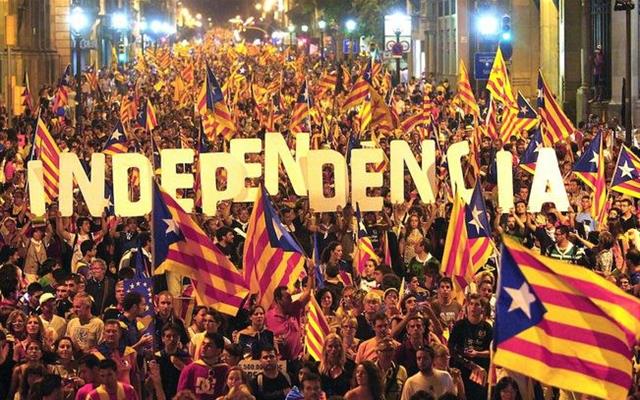CATALONIA
A general strike in Catalonia took place today after days of urban guerilla warfare involving the police and protestors in the main cities of the region, Barcelona and Girona in particular. People were wounded amidst barricades and dumpsters set ablaze. Widespread anger erupted after 12 Catalan pro-independence leaders were sentenced to prison. From the monastery of Monserrat, Abbot Josep M. Soler calls for calmness and dialogue. “Political solutions are urgently needed to tackle an essentially political problem”

A political solution that will resolve the Catalan question. The abbot of the Benedictine Monastery of Montserrat, Mons. Josep M. Soler, is advocating a serious and definitive solution that will end the violence without resorting to legal and judicial action.
The monastery is an imposing construction nestled into the rock: it is located at 720 meters above sea level in the heart of Catalonia. It is a symbol of this land and has always been a pilgrimage and cultural destination. The Abbot’s words resonate from this sacred site. His homilies are known throughout the country. On Sundays, the church is crowded with believers flocking to the site to listen to his words. Msgr. Soler always has a word of peace and dialogue, yet also brave and strong at the same time. After Spain’s Supreme Court sentenced 12 Catalan pro-independence leaders to prison terms of between nine and 13 years, the abbot released a statement requesting the release of the “prisoners.” “I deplore the fact that an issue that should have been resolved through political means has been brought to court,” he said. He voiced the hope that efforts will be made to ensure “they are released as soon as possible. This would facilitate the pursuit of solutions to the problem.”
SIR contacted him while the Catalan region, especially Barcelona and Girona, plunged into a full-blown urban guerrilla warfare. The prison sentences given to pro-independence leaders sparked off a surge of anger and protests in the city, with barricades in the street, trashcans set ablaze, and objects thrown at the police. Hundreds of people were injured on both sides. 25,000 students marched peacefully for the most part, while today, 18 October a major general strike is set to paralyze the entire region. Football matches are also affected. La Liga requested that the order of the scheduled match between Barcelona and Real Madrid of October 26 be switched around or that it be postponed to December 7.
 Acts of violence are breaking out especially at night. It’s due to people’s anger, especially among youths, resulting from pro-independence leaders prison sentences. Father Abbot, in your view, what is the right mode of action now?
Acts of violence are breaking out especially at night. It’s due to people’s anger, especially among youths, resulting from pro-independence leaders prison sentences. Father Abbot, in your view, what is the right mode of action now?
The political and social situation in Catalonia is very complex and problematic. The acts of violence carried out in some Catalan cities in recent days were caused by minority groups. They must be condemned altogether. Indeed, they don’t reflect the attitude of the vast majority of Catalans, whether or not they support independence. We have seen this in the many demonstrations of 11 September. This situation can’t go on any longer,
Political solutions are urgently needed to tackle a substantially political problem.
2017 left open wounds. The 12 separatist leaders were convicted on charges of “sedition” and “embezzlement.” The protests show that the Catalan question has not been resolved. In your view, what are the possible solutions to this situation?
The Catalan question can only start to be resolved through dialogue between all interested parties. This dialogue must be constructive, sincere and open. We must learn to listen to each other, to express our respective positions calmly, and to renounce – albeit temporarily, – our aspirations.
Only in this way will it be possible to reach agreements and common grounds that will make it easier to overcome the current situation.
In your opinion a reconciliation between Spain and Catalonia is possible. How can the Church facilitate this process?
We must work for sincere reconciliation and the Church can help through prayer and faithful witness to God’s mercy. We also urgently need to erect bridges between the two sides and foster the restoration of widespread confidence. The Church can make a very important contribution also in this respect. In fact it’s already happening.